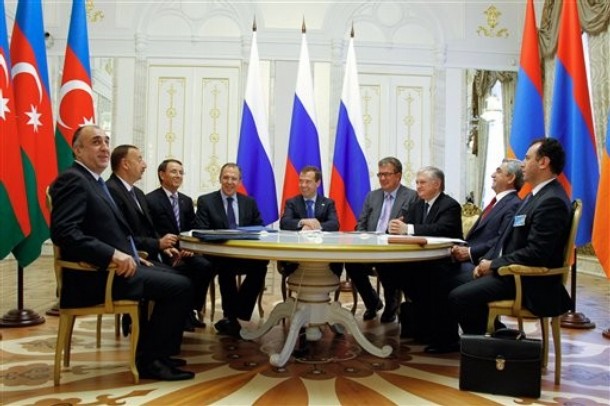Borut Grgic, a senior fellow at the Atlantic Council, and a member of the advisory board of the European Policy Institute, was interviewed by News.Az on recent developments in the Azerbaijan-Armenia relationship.
What are your impressions of the summit in Kazan? Are there grounds for pessimism that no document was signed during this meeting?
No, it’s just standard operating procedure at this point. But the implications are staggering. The longer we go without real progress, the further we are from ever being able to agree. The US took a shot at trying to solve the conflict during the last days of the Clinton presidency. Now Medvedev is trying; he too is failing. Who’ll try next? Why would anyone try? The two countries will soon be left to solve this on their own.
What do you think prompted Obama’s call to the leaders of Azerbaijan and Armenia ahead of the talks?
Of course the US has an interest in stability in the region, but Obama is being realistic. He’s not about to waste political capital and the resources of his Administration where no progress is possible because the local politics are so intransigent.
What can be done to create a breakthrough in the negotiating process?
The Azerbaijan and Armenian presidents should compromise, come down from their maximalist positions and accept a genuine compromise. This means nobody gets everything.
Let me also touch upon energy. During his visit to Brussels last week, President Aliyev expressed support for the Southern Corridor for gas exports. How realistic is this project? Do you believe it will be implemented soon?
Yes. Europe’s Southern Gas Corridor project is a reality. It will be built one way or another and it benefits all – consumers (i.e. the EU), suppliers (i.e. Azerbaijan) and transit countries (i.e. Turkey). The Southern Gas Corridor project is a real pan-European effort. For this reason it’s a stand-up project. The project architects need to keep in mind the Balkan countries as the project is designed. These countries need access to new gas, and the Southern Corridor can ensure this.
May energy resources help Azerbaijan settle political problems, primarily the Karabakh conflict?
I don’t know that there is a direct correlation between the two. The energy resources available to Azerbaijan are helping the country develop itself and grow. They are also enabling Azerbaijan to tie its fate to that of the European Union in a very real way. To this extent, the energy interdependency which is now developing between the EU and Azerbaijan at least ensures that the EU pays some attention to the conflict, and has some degree of direct interest in its peaceful resolution.
But to say that Azerbaijan has some tactical or strategic advantage over Armenia because of its energy would be stretching the point. The EU does not dish out favours in this way; the US doesn’t work this way either.
This article was originally published in News.Az.
Image: kazan.jpg
